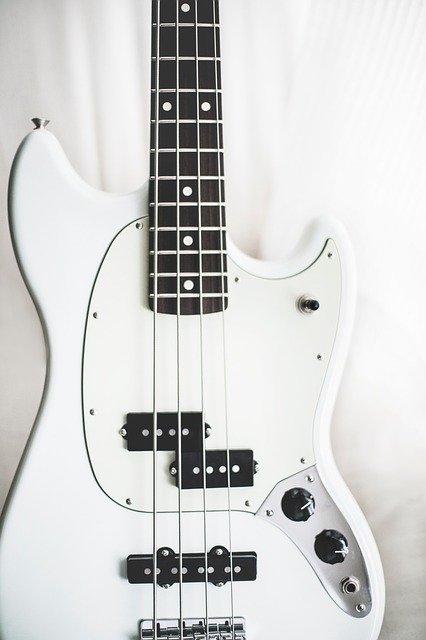Have you ever tried to learn a new song on the guitar, only to find that it sounds absolutely terrible? Maybe the notes are all wrong, or the timing is off, or it just doesn’t sound anything like the original. There are a few possible explanations for why your guitar might sound bad, and luckily, most of them are fairly easy to fix!
This article will explore some of the most common reasons why your guitar might sound bad, as well as some tips on how to fix them.
Why Does My Guitar Sound Bad?
When playing guitar, it may sound bad for a number of reasons, the most common of which are as follows:
1. Tuning Of The Guitar
If your guitar isn’t sounding right when you’re playing, the very first thing you should do is check the tuning of your instrument. Use a high-quality guitar tuner to ensure that every string is perfectly in tune before proceeding. Even a tiny out-of-tune note on any string can cause chords to sound sluggish and unnatural.
Although it is possible to play excellent tunes on a guitar that is slightly out of tune, the chords will sound dreadful.
Cheap guitars are much more likely to be constructed with lower-quality components, resulting in poorer tuning stability. As a result, when you tune your guitar, it will quickly become out of tune again. This can be extremely frustrating, especially when first starting to learn how to play.
2. Fretting Hand Technique
When you play chords, the technique you use to push your hand down onto the strings has a significant impact on how well the chords sound overall. Using a poor technique may result in a buzzing, muffled notes, or even out-of-tune chords if you play the guitar incorrectly.
In order to prevent the strings from buzzing, your fretting hand must push down on the frets firmly enough to prevent the notes from being bent or bent out of tune.
If you are strumming chords and hear buzzing, you are probably not using a proper fretting hand technique. You can fix this problem by practicing your chords with a metronome and gradually increasing the tempo until you can play them cleanly and accurately at fast speeds.
3. Poor Intonation
If you have followed all of the above recommendations and your chords continue to sound out of tune, you might have poor intonation.
When you play barre chords, poor intonation becomes immediately apparent. You should be able to tell whether your intonation is off if certain barre chords sound okay, but others above or below on the fretboard sound out of tune.
4. Low Action Height
This is caused by the strings vibrating against the frets while you play. If your guitar sounds thin and tinny with a slight twang or buzzing, it is most likely due to this.
Your guitar may sound squeaky on only particular portions of the fretboard or on specific strings, or throughout the entire fretboard, depending on the reason. This indicates that the action height of your guitar is too low, as seen by your guitar strings striking other frets as you pluck them.
Do Old Guitars Have A Bad Sound?
Old guitars seem ageless and valuable, yet many of them sound dreadful when played. If your guitar is more than 25 to 30 years old, the wood will become more resonant and provide a fuller tone.
Since the wood is settling down to its ultimate shape, if you have a guitar that is really old, you may need to re-straighten the neck to make it playable again.
How Do You Make A Bad Guitar Sound Good?
One of the easiest ways to improve the sound of an inexpensive guitar is to add thicker strings to increase sustain and ensure that it is properly adjusted, including the bridge height and cross rod position. Overdrive, distortion, and reverb are all effects that may be used to improve the overall sound quality of your music.
Some other ways to make a guitar sound better include:
- Changing the guitar pickups
- Adding a Bigsby tremolo
- Adjusting the truss rod
- Filing the nut slots
Final Thoughts
You might ask yourself why does my guitar sound bad. Your guitar can sound bad for many reasons. The most common cause is poor tuning, but other factors like cheap components, incorrect fretting hand technique, and low action can also contribute to a guitar sounding bad. By following the tips in this article, you can make your guitar sound much better and help it to last longer.



